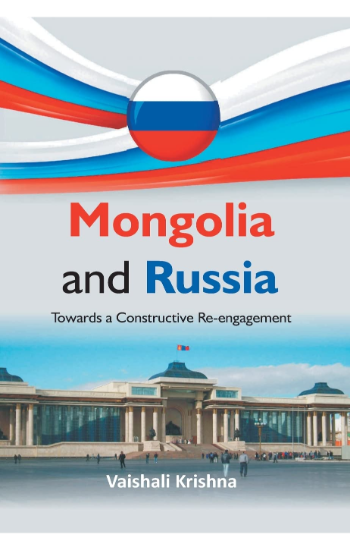
Save: 30%

Save: 20%
Mongolia And Russia: Towards a Constructive Re-engagement
Publisher:
| Author:
| Language:
| Format:
Publisher:
Author:
Language:
Format:
₹530 ₹398
Save: 25%
In stock
Ships within:
In stock
| Weight | 358 g |
|---|---|
| Book Type |
ISBN:
Page Extent:
About The Book: This book analyses the extent and pattern of MongoliaRussia relations in the political, economic and strategic domains in the broader framework of the postCold War dynamism. The emergence of new Mongolia after the Soviet collapse in 1991 paved the way for Mongolian policy makers to discard the seven decades old Communist system and go for democratic reforms and market economy. This resulted in the formulation of a new foreign policy based on pragmatism which guided Mongolia’s foreign relations including with Russia. While not ignoring the Cold War period this book also makes an objective investigation of the way in which Mongolia found itself dependent on the former Soviet Union for conducting its domestic as well as foreign policies. This sets the tone for discussing the whole gamut of relationship between the two sides in the changed geopolitical scenario of postSoviet period during which three stages were noticed: a breakdown of bilateral relations, stagnation, and revival of relations. The revival of relations between the two countries started to take shape with the visit of the new Russian President Vladimir Putin to Mongolia in 2000. The book, therefore, examines the state of MongoliaRussia relationship in the context of a “Constructive Reengagement” which began with the signing of the “Ulaanbaatar Declaration” between the two sides during Putin’s visit to Mongolia.
About The Book: This book analyses the extent and pattern of MongoliaRussia relations in the political, economic and strategic domains in the broader framework of the postCold War dynamism. The emergence of new Mongolia after the Soviet collapse in 1991 paved the way for Mongolian policy makers to discard the seven decades old Communist system and go for democratic reforms and market economy. This resulted in the formulation of a new foreign policy based on pragmatism which guided Mongolia’s foreign relations including with Russia. While not ignoring the Cold War period this book also makes an objective investigation of the way in which Mongolia found itself dependent on the former Soviet Union for conducting its domestic as well as foreign policies. This sets the tone for discussing the whole gamut of relationship between the two sides in the changed geopolitical scenario of postSoviet period during which three stages were noticed: a breakdown of bilateral relations, stagnation, and revival of relations. The revival of relations between the two countries started to take shape with the visit of the new Russian President Vladimir Putin to Mongolia in 2000. The book, therefore, examines the state of MongoliaRussia relationship in the context of a “Constructive Reengagement” which began with the signing of the “Ulaanbaatar Declaration” between the two sides during Putin’s visit to Mongolia.
About Author
Reviews
There are no reviews yet.
Related products
RELATED PRODUCTS
Historical Development of Food and Agriculture In Bengal
Save: 20%
Kidney: A Drop In the Backdrop Swachchh Bharat Abhiyaan
Save: 10%
The Prairie Traveler: A Hand-Book For Overland Expeditions
Save: 10%



Reviews
There are no reviews yet.